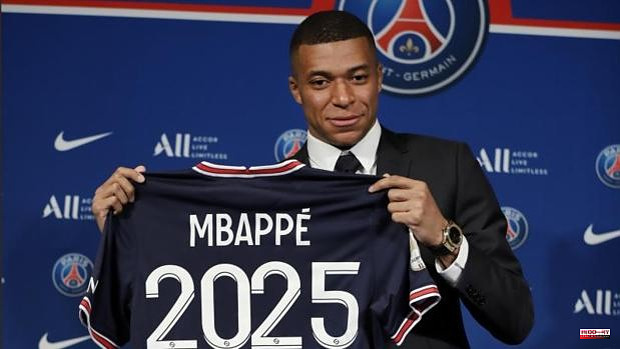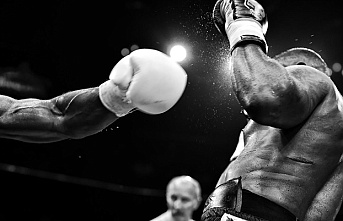Paris Saint-Germain's latest moves have raised questions about whether the Parisian club is complying with UEFA's Financial Fair Play (FFP) rules. Factors such as the taxation that governs in France or the unknowns about the transparency of its sponsorships invite a legal debate whose consequences, if the violation of the FFP can be proven, could lead to a wide range of sanctions ranging from exclusion from European competitions to the reduction of its squad and even the disqualification of those tournaments in which it participates.
The alerts jumped again when Kylian Mbappé renewed. The continuity of him has even caused the denunciation of LaLiga when considering that it was an incompatible investment with the supposed balance in the accounts of the French.
For Toni Roca, CEO of the Sports Law Institute and director of Himnus, a law firm specializing in football, there are factors that support LaLiga's position. For example, the French tax regime. Contrary to what happened with signings like Messi or Neymar, Mbappé is a tax resident in France. In other words, he cannot take advantage of the inpatriate regime that does benefit foreign transfers with tax reductions of 30%. He pays taxes like any ordinary citizen », Roca begins his argument.
“The French treasury shoots up, and a lot, the amount that PSG is paying the footballer compared to foreign signings. Mbappé has to pay taxes at 55.6%, a percentage that PSG will surely assume, because in contracts of this nature, salaries are agreed in net. It is the clubs that later commit to pay the corresponding gross, "adds the lawyer. Thus, if it is true that Mbappé earns a clean 50 million euros per season, as has been reported in France, his real gross salary would be about 112.61 million euros. To this would have to be added a transfer bonus that in France is estimated at 130 million net, that is, another 97 million euros gross more per year. If you add the interest in Tchouameni and the possibility of paying between 80 and 100 million for his signing, the amounts seem difficult to justify in the terms of the FFP if public information on PSG accounts is analyzed », says Roca.
UEFA's FFP mechanism is based on the break-even concept. “This principle determines that, during a period of three years, the clubs cannot spend more money than they earn, allowing a deviation in those three years of five million euros, or 30 million if they are covered with capital contributions,” explains the lawyer, who adds: «In order to assess whether PSG is skipping the FFP or not, it is not enough to have salary data, but we must take into account income data as well. Within the income of the clubs we have four large items: TV rights (they were sold at a drop in France), ticketing (this concept has not been able to rise much, what is more, it has dropped due to the pandemic), sales of soccer players and sponsorships , where doubts are usually generated with potential traps due to inflated sponsorships».
«PSG closed the 2019-2020 season with losses of 125 million euros and 224 million in 20-21. That adds up to 350 million in just two years, which is clearly much more than the maximum 30 million allowed. With these figures it seems more than evident that with the new contracts or renewals, PSG would be breaching the FFP. Because to mop up those losses, what you have to do is precisely not increase spending, but rather boost income, a stagnant and even reduced item, and drastically reduce spending", reiterates Roca, who highlights: "There are only two ways to increase income: sell soccer players, which have the double positive effect of earning money and saving salary, or increasing the only possible item, that of sponsorships. And this is where the crux of the matter comes again, with reasonable doubts about whether the sponsors that PSG has from Qatar are overvalued well above the market.
If UEFA were to initiate proceedings against PSG and it is shown that they are indeed in breach of the FFP, the range of sanctions that could result is much greater than is known to the general public. “Many fans remember what happened to City in a similar case. In his case, he was excluded from European competitions for several seasons, although the Court of Arbitration for Sport later revoked the punishment," recalls Roca, who concludes: "There are many more possible punishments. Namely: a reprimand, a fine, withholding of prize money, deduction of points, refusal of players to enter UEFA competition, reduction of the permitted size of the club squad or even disqualification of the competitions in progress.












